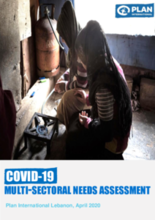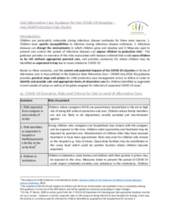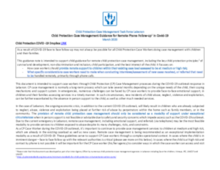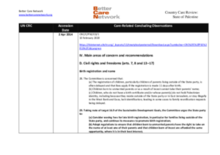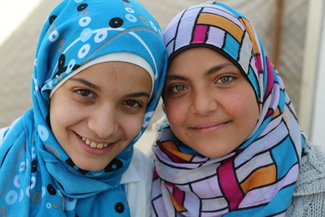

Displaying 81 - 90 of 244
Based on the resilience theory, which highlights the role of one’s social resources in fostering resilience, the current study explored the role of care leavers' formal and informal social networks during the transition to adulthood, from the point of view of 50 young adults and their social workers.
In this episode of the Protected! Podcast, Elissa Alhassrouny, a child protection specialist with Plan International Lebanon, discusses how their team moved to remote child protection programming and the steps involved in that process.
Family for Every Child is seeking a highly-experienced consultant for a 3-year project on interagency collaboration for better integration and reintegration of children on the move between Middle East and Europe.
This report presents insightful findings on the effects of the COVID-19 outbreak in Lebanon, highlighting data collected on COVID-19 knowledge, health, WASH, protection, education, food security and livelihoods, shelter, movement and digital access.
The current exploratory study is the first to look at the challenges and barriers in this transitional life stage of 23 Israeli Arab young adults, from their own perspectives, after leaving residential care.
This guidance provides an overview of the risks associated with COVID-19 outbreak that could cause children to be left without appropriate parental care, and provides scenarios for where children may be identified as separated in Iraq due to issues related to COVID-19.
This guidance note is intended to support child guidance for remote child protection case management, including the key child protection principles of survival and development, non-discrimination and inclusion, child participation, and the best interest of the child.
This Country Care Review includes the care-related concluding observations adopted by the Committee on the Rights of the Child as well as ratification dates.
SafeCare® is a home‐based intervention programme targeting parents of children up to 5 years old and is designed to reduce and even prevent child abuse and neglect. This article presents an evaluation of a pilot trial of SafeCare® in Israel, examining family's outcomes.
This qualitative study explored the accounts of 50 residential childcare staff in Saudi Arabia, aiming to identify ways in which staff and residential institutions may function as attachment objects for the children in their care.

